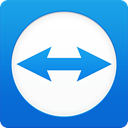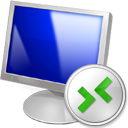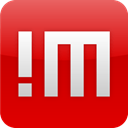Unleash Remote Control: Discover the Best Dayon! Alternatives for Seamless Access
Dayon! stands out as a user-friendly, open-source, and cross-platform solution for controlling remote computers, serving as an excellent free alternative to many commercial remote desktop products. Its ease of setup, portable quick-launch binaries, and encrypted communication make it a compelling choice. However, even the most robust software can have users looking for different features, broader platform support, or simply a fresh interface. If you're exploring your options beyond Dayon!, you're in the right place to discover some powerful alternatives.
Top Dayon! Alternatives
Whether you're seeking more advanced features, greater flexibility, or simply a different user experience, the remote desktop software market offers a diverse range of solutions. Here are some of the top contenders that can serve as excellent replacements for Dayon!, each bringing its unique strengths to the table.

TeamViewer
TeamViewer is a widely recognized name in remote access, allowing users to establish connections to any PC or server within seconds. As a Dayon! alternative, it offers extensive platform support including Free Personal, Mac, Windows, Linux, Android, iPhone, Chrome OS, and even Raspberry Pi. Its feature set is robust, providing support for remote control, remote reboot, multiple monitors, audio/video calling, file transfer (drag and drop), unattended access, and web tool functionality, making it a powerful choice for both personal and professional use.

AnyDesk
AnyDesk is a remote desktop application acclaimed for its focus on speed and security, enabling seamless screen and file sharing across most devices. It's a strong Dayon! alternative with broad platform compatibility across Mac, Windows, Linux, Android, iPhone, Chrome OS, BSD, and Raspberry Pi. Key features that make it stand out include integrated file sharing, low bandwidth usage, portable binaries, real-time collaboration, and the ability to record desktop activity, providing a fast and efficient remote experience.

Chrome Remote Desktop
Chrome Remote Desktop provides a straightforward way to access another computer remotely through the Chrome browser or a Chromebook. As a free Dayon! alternative, its simplicity and integration with the Chrome ecosystem make it highly accessible. It supports Mac, Windows, Linux, Android, iPhone, Chrome OS, and iPad. Features include an integrated file sharing, proxy support, and a built-in terminal, making it a convenient option for quick and easy remote access without additional software installations.

Remote Desktop Connection
Remote Desktop Connection (RDC) is a built-in technology for Windows users, allowing you to connect to a remote computer. It's a free and readily available Dayon! alternative for those primarily on Windows. RDC excels in providing fundamental remote desktop access, screen mirroring, and access control, making it a reliable choice for managing Windows machines without needing third-party software.

UltraVNC
UltraVNC is a free, open-source remote PC access software that enables the display of another PC's screen over a LAN or the Internet. As an open-source Dayon! alternative for Windows, it's lightweight and portable, offering features like file transfer, integrated chat, and support for the VNC protocol. It's an excellent choice for users who prefer open-source solutions and need basic yet effective remote control capabilities.

mRemoteNG
mRemoteNG is an open-source, tabbed, multi-protocol remote connections manager, serving as a powerful Dayon! alternative for Windows. It stands out with its support for multiple protocols including RDP, SSH, and VNC, allowing users to manage various types of remote connections from a single interface. Its features like a built-in SSH client, RDP functionality, and a tree view for organizing connections make it ideal for system administrators and power users.

TigerVNC
TigerVNC is an advanced, open-source VNC implementation, offering a robust Dayon! alternative with cross-platform support for Mac, Windows, Linux, and BSD. It includes features from other VNC projects like TightVNC and TurboVNC, providing an efficient and reliable remote desktop experience. Its open-source nature and integration of various VNC enhancements make it a solid choice for those seeking a highly compatible and customizable solution.

VNC Connect
VNC Connect, by RealVNC, is a comprehensive screen sharing software that allows connecting to a remote computer anywhere in the world. As a freemium Dayon! alternative, it supports Mac, Windows, Linux, Android, iPhone, Chrome OS, BSD, iPad, and Raspberry Pi. Key features include robust VNC protocol support, SSH capabilities, and the ability to work seamlessly behind firewalls, providing a secure and versatile remote access solution for both personal and business needs.

LogMeIn
LogMeIn is a commercial remote access software known for letting users access their desktop from most computers and smart devices. While a paid Dayon! alternative, it offers strong features for users on Mac, Windows, Web, Android, and iPhone, including integrated file sharing and portable access. It's a reliable choice for businesses and individuals who prioritize extensive features and professional support.

NoMachine
NoMachine provides fast and feature-rich access to remote computers, supporting any content including audio and video. As a freemium Dayon! alternative, it offers extensive platform support including Mac, Windows, Linux, Android, iPhone, iPad, and Raspberry Pi. Its notable features include media streaming, full controller support, SSH capabilities, and the ability to record desktop activity, making it an excellent choice for demanding remote tasks and multimedia applications.
Each of these Dayon! alternatives offers unique advantages, from broad platform compatibility to specialized features like enhanced security or multimedia streaming. Consider your specific needs regarding operating systems, budget, required features (e.g., file transfer, unattended access, multi-monitor support), and ease of use to choose the best fit for your remote control requirements.